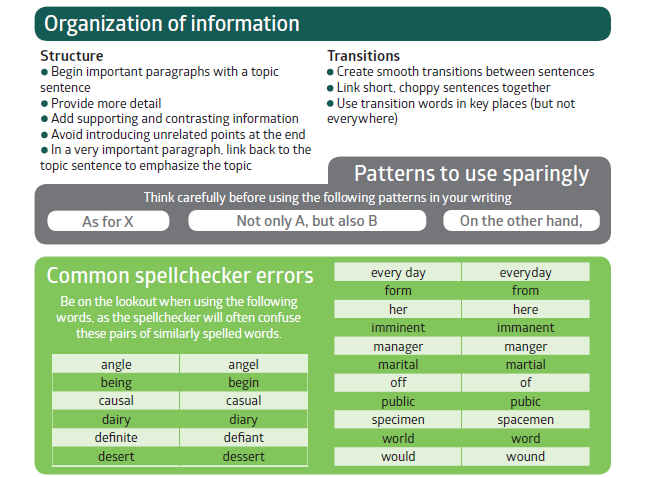The spellchecker function of a word processor is a useful tool for all writers, even those writing in their first language. However, in many instances, the spellchecker will fail to catch errors that would be apparent to a native speaker. Worse, it may even occasionally suggest changes that are incorrect. This can happen when using words that serve as both noun and verb. For instance, the following type of mistake is often seen.
Here, the noun "staff," in the sense of a group of employees, is an uncountable noun; therefore, the plural is simply "staff." Because this is a common word in English, most native speakers would not make this mistake. However, "staff" is also a verb and can become "staffs" in sentences such as "She staffs the branch office with skilled workers." The word processor cannot distinguish between these distinct correct uses of the word, so it will not alert you to mistakes of this kind. You have to identify these by careful reading.
Likewise, use grammar checkers with care. They can be helpful, but they do not always function correctly.
Helpful comment: When typing the previous example in Word, the grammar checker underlined the word "their" and the comment helpfully reminds us to double-check that we have used the correct word "their" versus the word "they're", which is commonly confused with it.
Unnecessary comment: Often grammar checkers over-apply certain writing conventions (which may even be writing myths, as we've discussed previously) to any text written using that word processor, regardless of the type of content. Therefore, the grammar checker may suggest completely unnecessary changes that ignore your voice or target writing style. In the example below, not only is the original text completely appropriate, the phrase "per" is actually less common than "according to" for this style of writing. Although the grammar checker's suggestion is not technically incorrect, the sentence would be less effective if you accepted it.

Incorrect comment: Lastly, grammar checkers are sometimes simply wrong. In the example below, the grammar checker has failed to detect that the initial clause in the sentence extends all the way to "mathematical models." If you were to accept its suggestion here, not only would the meaning of the sentence change to "when explaining in a general sense" instead of the more specific meaning that is intended, it would actually cause the sentence to be grammatically incorrect!
Because of the unreliability inherent in grammar checkers, you should assess whether the suggestions are appropriate before accepting them.







